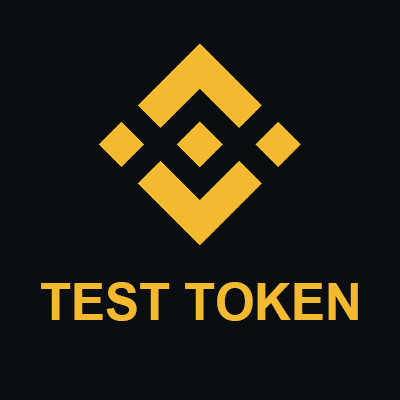The Involution Behind KOL: Is the Kaito Yap Model Really Sustainable?
Author: Nianqing, ChainCatcher
Have you noticed that many KOLs have started to Yap while scrolling through X these days? What are they all Yapping about?
Yaps is a points system launched by Kaito, an AI-driven crypto data analysis and social incentive platform, where X users can earn Yap points by posting high-quality crypto content (tweets, interactions). Recently, Berachain airdropped to Yappers, and today Kaito announced that the first 1,000 ANIME (the anime token under Azuki) Yappers and Kaito Genesis NFT holders can claim ANIME tokens. Coupled with collaborations with multiple projects like Story Protocol, Movement Labs, and MegaETH, the expectation that "projects on Yap Kaito can receive airdrops" has once again heightened Kaito's popularity.
Similar to the previous trajectory of Web3 social flywheels, KOLs and influential figures with existing clout thrive in the Yaps points system. They tirelessly produce articles on X and form matrices with other ICT (Inner Crypto Twitter). The benefit is that discussions about crypto and outputs on popular projects have increased, but foreseeable downsides are gradually emerging, such as the proliferation of low-quality content, excessive interactions causing harassment for KOLs, and deeper issues like influence monopolization. Kaito has recently announced the upcoming launch of Shadow Ban to improve the current chaos through technical means. However, controversies and doubts continue.
In 2024, fundamental analysis faces a complete collapse in the crypto space, and the current market increasingly confirms the saying, "Attention in crypto is everything." If memes are a result of the attention economy, then Kaito is more like an upstream business of the attention economy, focusing on how to manage and allocate attention. But the essence of the attention economy is simply the next better thing. As a product of this era, can Kaito overcome short-term behaviors and become a sustainable, practically useful product?
This article will provide a detailed analysis of Kaito. Due to the existence of Yap, there are many (inflated) articles about Kaito on X, but I still recommend you read this article.
Kaito is an AI-driven crypto data analysis and social incentive platform. According to the RootData page, Kaito completed two rounds of financing in 2023, raising $5.3 million in seed funding and $5.5 million in Series A funding, with investors including Superscrypt, Spartan, Dragonfly, Sequoia China, and Jane Street.
Founder and CEO Yu Hu graduated from Cambridge University and previously worked at traditional financial companies like Citadel and Deutsche Bank. In a recent podcast, Yu Hu revealed that he grew up in China, studied in the UK, and later started businesses in the US and Singapore. Yu Hu is not a tech geek; he is very skilled in trading and believes that trading is the closest way to the market. He also mentioned in the podcast that Kaito will achieve profitability in June 2024 and has seen over a hundredfold growth in the past year.
Its core functions include:
1. Crypto Social Data Analysis: By scraping social data from public platforms like Twitter (X) (such as interactions, follower graphs, content dissemination), Kaito builds a KOL influence scoring model to provide quantitative marketing decision support for project parties. Currently, some features of Kaito are paid; its official website shows that the annual subscription price for Kaito Pro is $833/month, while the monthly price is $1,099/month. Why is the pricing so high? Simply put, the cost of using the commercial API of the X platform is very high, and regulatory restrictions on call volumes lead Kaito to limit user access through price increases, ultimately opting for a ToB model.
Related Reading: “ In-depth Analysis of Kaito: How Did the Yap Activity Ignite the Social Flywheel? ”
2. Yaps Points System: Users earn Yap points by posting high-quality crypto content (tweets, interactions), which may be redeemable for tokens or other incentives (such as airdrops, project collaboration rewards) in the future. Kaito emphasizes that to prevent manipulation and witch-hunting, earning Yap points is not easy and does not rely on quantity. The total amount of Yaps distributed daily is only 25,000, while the total user base has exceeded 250,000 (as of January data), making its scarcity evident. As user numbers rapidly increase, the difficulty of earning Yap points has multiplied, creating intense competition.
The algorithmic mechanism of Yaps ensures that KOLs and major influencers in the core influence circle will "grow stronger," while novice users find it challenging to earn Yap points. This is because the evaluation mechanism relies on reputation-weighted influence rather than raw impressions or engagement. Therefore, if the cumulative qualified social engagement of a tweet does not reach a specific threshold, points may not be awarded.
The core principles for Yap point distribution are:
Quality > Quantity: Garbage content (duplicate, no analysis) will be filtered out by the system, resulting in zero points.
Hotspot Orientation: Provide in-depth analysis around projects recommended on the Kaito panel (such as Berachain, Monad, Xion).
High-Quality Interaction: Interacting with major influencers about the content of the tweets (comments, likes) is more efficient than merely posting.
In summary, only content that is hot, high-quality, valuable, and can genuinely spark discussions in the crypto industry has the opportunity to earn points. Additionally, bringing in new users will also earn points, but the condition for earning points is that the new users must earn Yap points.
3. KOL Scoring and Leaderboard: Kaito dynamically ranks KOLs based on AI algorithms, forming a "Yapper Leaderboard," which serves as a reference standard for project parties to select collaboration partners.
One of Kaito's strengths is filtering out smart followers from potentially inflated follower lists on the X platform, reducing the interference of bot accounts. This feature has strong commercialization potential and largely addresses the pain points of KOL marketing, providing project parties with quantitative standards through its own AI scoring mechanism. The leaderboard based on Yap points connects high-scoring users with project needs, forming an "influence-as-a-service" model, where project parties can purchase the "influence" of top-ranked users, making it more transparent compared to traditional KOL payments.
In 2024, fundamental analysis faces a complete collapse in the crypto space, and the current market increasingly confirms the saying, "Attention in crypto is everything."
If memes are a result of the attention economy, then Kaito is more like an upstream business of the attention economy, focusing on how to manage and allocate attention.
We can specifically categorize participants in the attention economy into:
Attention creators
Attention consumers
Attention distributors
Strictly speaking, Kaito is not just a simple crypto data analysis platform; it plays the role of an attention distributor, aiming to create a better network for efficiently allocating information, attention, and capital. Kaito founder Yu Hu has also made two judgments: 1. In the age of the attention economy, personal brands will become increasingly important; 2. In the AI era, people will place more emphasis on connections between individuals.
Yap is the tokenization of this "attention," and the Yap to Earn model aligns with the strong demand for traffic and community participation in the crypto industry. This is also the biggest difference between Kaito and Friend.tech's "direct monetization of influence," as Kaito's definition of influence is more refined and sufficiently unitized. As mentioned earlier, the scarcity of Yap points set at the beginning directly determines the influence of content in this space.
Of course, Kaito's surge is also inseparable from the wealth effect. More critically, the events constituting Kaito's wealth effect are not one-time or short-term behaviors. As an influence-launching platform, Kaito's mechanism can significantly help early-stage, unlaunched projects expand consensus. Recently, Berachain airdropped to Kaito Yappers, and well-known projects like Story Protocol, Movement Labs, Eclipse, and MegaETH have launched on Kaito's platform, promising to incorporate Yap points into airdrop or incentive plans, thus attracting more users.
Moreover, the valuation of Yap points is also assigned a higher value due to their scarcity and difficulty of acquisition. Kaito does not solely use its own tokens to reward creators. By participating in its ecosystem, users can also farm multiple airdrop rewards from top projects.
The other side of the wealth effect is speculation. Kaito's Yap competition indeed provides creators and content producers with motivation to create, but it has also led to a proliferation of low-quality content. Many KOLs have complained that the Twitter feed has been polluted by Yap, even claiming, "If I see one, I block one." Although Kaito is about to launch Shadow Ban to limit low-quality content, I believe Kaito should focus more on community education, continuously emphasizing the rules of Yap.
Additionally, the algorithm behind Kaito Yap is somewhat of a black box; although there are scoring standards, they are very vague. Furthermore, the current algorithm is clearly biased towards KOLs, as the measurement mechanism for Smart Followers exists, monopolizing the majority of Yap points for the core influence circle, making it very difficult for novice users to earn points. @ Tang Hua Banzhu once commented that Kaito is not a credible Twitter X evaluation system; at best, it is just a platform for KOLs to exploit. The so-called filtering of quality content has essentially turned into "to earn points, you must continuously promote popular projects on Kaito." This has also led to an excessive concentration of chips in the hands of top Yappers.
Yu Hu mentioned in an interview that his goal is to financialize everything through Kaito, allowing market forces to decide, such as users voting on which projects to launch on the Launchpad. But are market forces always correct?
KOL @Xiao Xiong Bing Gan.eth has judged that Kaito's popularity will wane. He pointed out that the voting mechanism for Kaito projects has gradually evolved into a queue for launching, leading to a lack of "bribery" motivation in the absence of survival of the fittest, causing Yap players' attention towards Kaito Launchpad projects to decline. Coupled with the current algorithm being unfriendly to retail investors, Kaito's long-term development may lack momentum.
The attention economy itself is destined to be a short-term behavior. Historical precedents tell us that once the support of fundamentals is lost, the narrative of the crypto market completely devolves into "the next better thing." Kaito may become a sustainable business model, but its true significance to the crypto market is whether it aids in short-term speculation or promotes greater interaction and consensus in the crypto market. As the wealth effect diminishes and attention shifts, how should Kaito avoid following the old path of Friend.tech and other Web3 social platforms?
Kaito founder Yu Hu has a grand ideal; he hopes that Kaito's ultimate goal is for users to forget the existence of the Yaps system, making the output of opinions a habit. Perhaps this is where the value of a product lies.
Grayscale’s Solana ETF Proposal Moves Closer to Approval As SEC Reviews Filing
The U.S. Securities and Exchange Commission (SEC) has officially accepted Grayscale Investments’ proposal for a Solana (SOL) exchange-traded fund (ETF) for review, marking a significant step toward potential approval.
The filing, submitted on Thursday by NYSE Arca as a 19b-4 rule change request, opens the door for public commentary and regulatory scrutiny.
The SEC’s decision to review the filing is particularly notable given its previous stance on SOL-based ETFs. Bloomberg analyst Eric Balchunas pointed out that this is the first time an ETF application for an altcoin the SEC has previously classified as a security has been formally accepted for review.
“This is the first time an ETF filing tracking a coin that had previously been called a “security” has been acknowledged by SEC. Only six weeks ago the Genz-led SEC told CBOE to withdrawal their Solana 19b-4. So we are now in new territory, albeit just a baby step, but seemingly the direct result of leadership change.” He tweeted.
Elsewhere, his colleague, James Seyffarth, emphasized that past SOL ETF proposals were rejected outright, signaling a potential shift in regulatory approach.
That said, regulatory dynamics surrounding Solana have been evolving. Just six weeks ago, the SEC, under Chair Gary Gensler, had directed the Chicago Board Options Exchange (CBOE) to withdraw a similar application for a Solana ETF. However, recent leadership changes at the SEC appear to have influenced a reconsideration of the asset’s status in the ETF landscape.
Meanwhile, as part of the regulatory process, the SEC has initiated a 21-day public comment period following the proposal’s publication in the Federal Register. This phase allows industry stakeholders and market participants to submit feedback before the agency makes a final determination. The review period does not guarantee approval but is a crucial step in assessing the market impact and regulatory compliance of the proposed ETF.
Grayscale’s move to introduce a Solana ETF aligns with broader efforts by asset managers to expand crypto investment products. The SEC is currently evaluating multiple Solana ETF filings, including those from VanEck, 21Shares, Canary, and Bitwise, alongside Grayscale’s proposal. Additionally, there are ongoing reviews for spot ETFs based on XRP, with filings from Bitwise and 21Shares.
The potential approval of a Solana ETF coincides with optimistic market forecasts for the cryptocurrency. On Thursday, investment firm VanEck projected that Solana could reach $520 by the end of 2025, citing an increase in the global money supply and Solana’s growing dominance in the smart contract sector.
Beyond price predictions, Solana’s strong developer activity, rising decentralized exchange (DEX) volumes, and increasing network revenue reinforce its standing as a major player in blockchain innovation. These factors contribute to the argument that a Solana ETF could offer traditional investors an accessible and regulated way to gain exposure to the asset.
Tornado Cash Co-Founder Released From Prison, Plans to Focus on Appeal
The post Tornado Cash Co-Founder Released From Prison, Plans to Focus on Appeal appeared first on Coinpedia Fintech News
After Donald Trump pardoned Silk Road founder Ross Ulbricht, calls from the crypto community for the release of the Tornado Cash co-founders surged, drawing significant attention. This momentum led to the release of Alex Pertsev, a developer of the cryptocurrency mixer Tornado Cash, from pretrial detention in the Netherlands. Facing money laundering charges, Pertsev has been released under electronic monitoring, enabling him to prepare his appeal.
TORN Rallies As Regulator Releases Tornado Co-founder
Alex Pertsev, co-founder of the cryptocurrency mixing service Tornado Cash, has announced that a Dutch court has put a hold on his pretrial detention and allowed him to switch to electronic monitoring as he gets ready to appeal.
Alex said, “Freedom is priceless, but my freedom cost a lot of money. My house arrest was only possible thanks to the work of lawyers, who were paid from your donations. My fight is not over yet and for a final and confident victory I still need your help.”
The announcement led to a surge in the price of Tornado Cash’s token, TORN, which jumped nearly 20% before settling at $13.72.
Dutch authorities arrested Alex Pertsev in August 2022 following U.S. sanctions against Tornado Mixer and its developers. Pertsev faced charges of facilitating money laundering and being negligent in preventing illegal financial activities on the platform.
In May 2024, a Dutch court sentenced Pertsev to five years in prison, finding that his involvement with Tornado Cash helped launder criminal funds. The court acknowledged that Tornado Cash could be a neutral tool, but stated that developers had a responsibility to prevent its misuse.
After his arrest, the Russian national began actively appealing his conviction and requesting bail. Despite several attempts, his bail requests were continually denied. His defense argues that he merely created open-source software and should not be criminalized for how others choose to use it.
Debate Continues Over Developer’s Liability
On November 26, the Fifth Circuit Court of Appeals directed the US Treasury’s Office of Foreign Assets Control (OFAC) to remove addresses linked to Tornado Cash from its list of blocked individuals and entities.
This decision was viewed as a major victory for Pertsev and Roman Storm, another developer of Tornado Cash who was arrested in August 2023 and is awaiting trial.
Also read: Ethereum Community Backs Developer and Tornado Cash Co-founder, Calls for Trump’s Assistance
The court noted that sanctioning the protocol wouldn’t stop malicious actors from using it since smart contracts operate independently and cannot be owned, controlled, or changed. The ruling also suggested that legislation be updated to better regulate the use of crypto-mixers.
Advocates argue that these services are mainly intended to protect user privacy. However, there have been many cases where criminals have used these services to launder money, which has drawn the attention of law enforcement agencies around the world.


 Preço mais baixo
Preço mais baixo Preço mais alto
Preço mais alto 









































